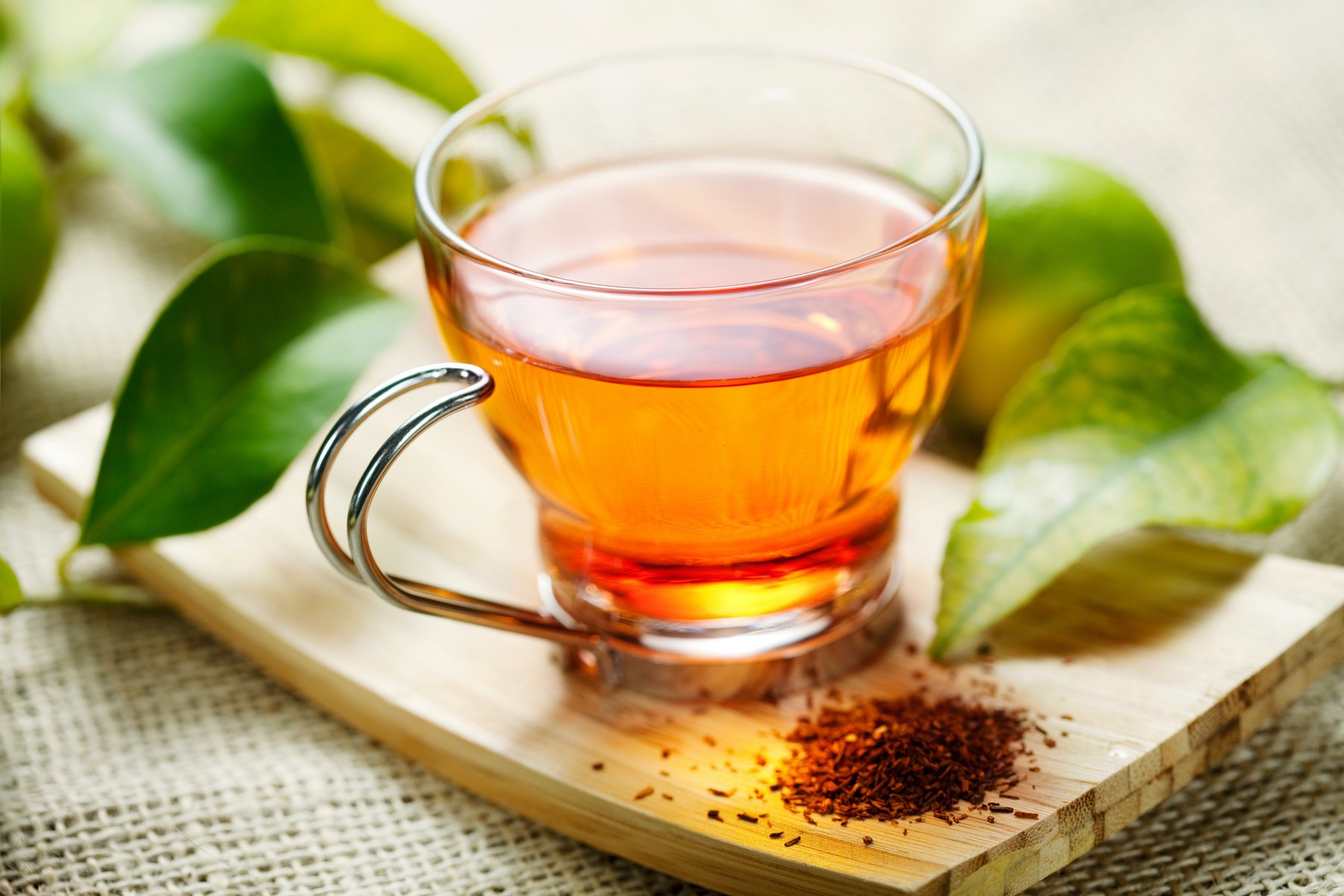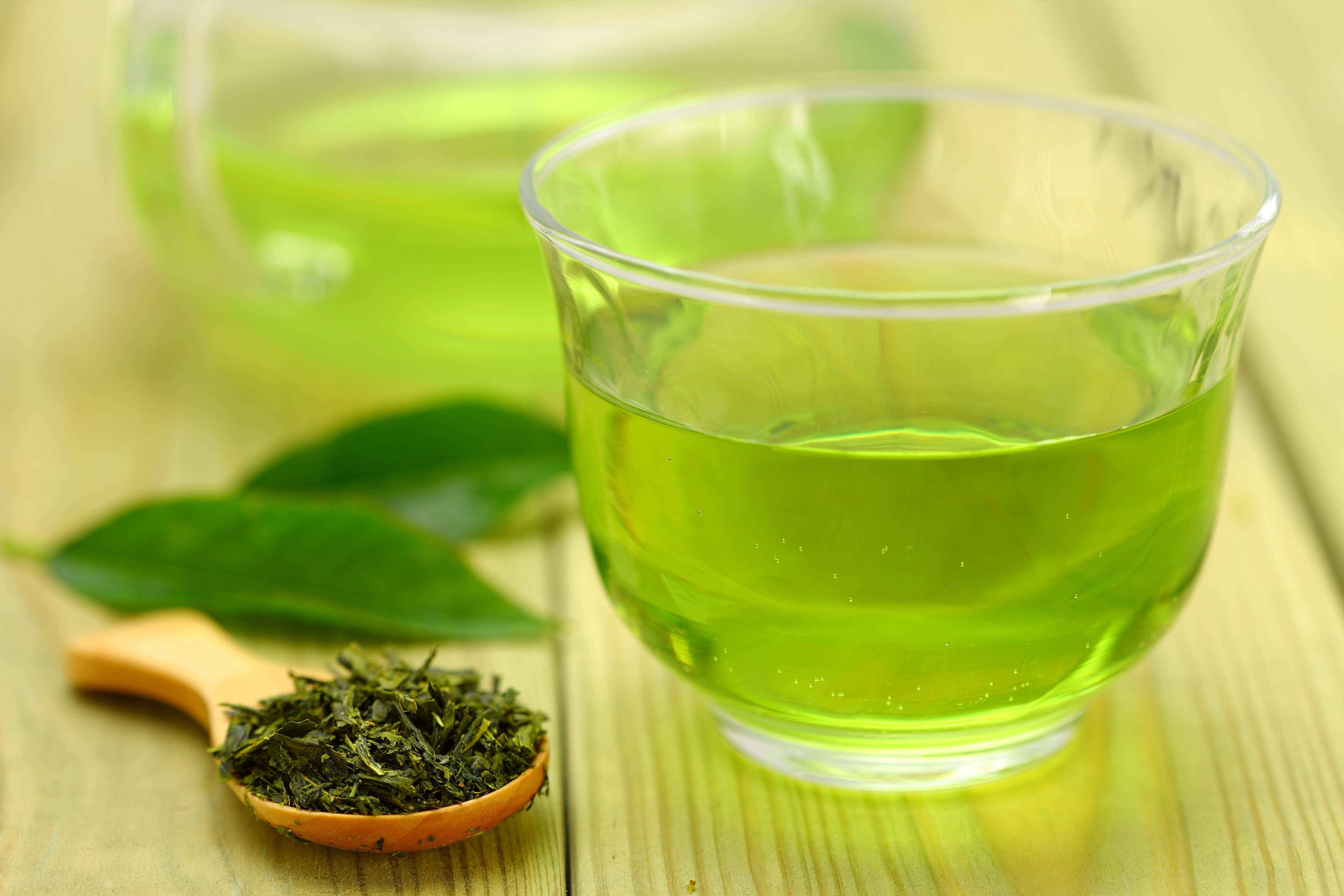For years I have been drinking green tea based on all the researched health benefits. Recently, however, I learned that a diet high in oxalates can cause a myriad of health problems. Since black and green tea are considered to be high in oxalates, I decided to stop drinking these types of teas and instead increase my intake of rooibos tea. Truth be told, I've had Rooibos tea in my tea cupboard for years, but didn't really investigate how many health benefits it possesses. Perhaps you haven't heard of this herbal tea. Maybe it's time you checked it out too. It is very healthy, delicious and very low in oxalates. Now that's a winning combination!
Basic Differences Between Rooibos Tea and Green Tea
Rooibos tea and green tea are both known for their numerous health benefits, but they have some key differences that make them unique. One of the main differences between the two teas is that rooibos is low in oxalates, while green tea contains high levels of oxalates. In this blog post, we will explore the health benefits of rooibos tea and green tea and discuss the importance of oxalates in relation to health.
Rooibos Tea
Rooibos, also known as red bush tea, is a well-known herbal tea, consumed for centuries by the Khoisan people of South Africa, has displayed potent anti-inflammatory, antioxidant, redox modulating, anti-diabetic, anti-cancer, cardiometabolic support and organoprotective potential. This popular herbal tea that originated in South Africa is made from the leaves of the Aspalathus linearis plant and has a unique, slightly sweet and nutty flavor. Interestingly, rooibos tea only grows in the mountainous Cederberg region of South Africa.
One attractive feature of rooibos tea is that it is naturally caffeine-free. This makes it a great alternative to traditional tea or coffee for those who are sensitive to caffeine or for those who want to avoid caffeine for other reasons. Caffeine can cause jitteriness, anxiety, and trouble sleeping, and can also lead to dehydration.
Healthy attributes of Rooibos Tea
Rooibos tea is rich in antioxidants, which can help to protect the body against damage from free radicals. Free radicals are unstable molecules that can damage cells and contribute to the development of chronic diseases such as cancer and heart disease. The antioxidants in rooibos tea, including aspalathin and nothofagin, can help to neutralize free radicals and protect the body against damage. In fact researchers have found rooibos tea has properties that can reduce some of the most feared effects of the SARS-CoV-2 virus; the cytokine storm!
Another major health benefit of rooibos tea is that it is low in oxalates. Oxalates are naturally occurring compounds found in many foods, including tea. High levels of oxalates can lead to the formation of kidney stones in people who are susceptible to them. As I wrote about in my last blog post on oxalates, there are many other health risks of a high oxalate diet. Drinking rooibos tea, which is low in oxalates, can reduce the risk of kidney stones and the myriad of health risks a high oxalate diet can cause.

Rooibos tea is a caffeine-free alternative to traditional black and green teas and is known for its unique taste and health benefits. Here are some of the key nutrients found in Rooibos tea:
- Antioxidants: Rooibos tea is rich in antioxidants, which are compounds that can help protect your cells from damage caused by free radicals.These antioxidants include aspalathin and nothofagin.
- Minerals: Rooibos tea contains a variety of minerals including calcium, iron, potassium, copper, and zinc. These minerals are essential for maintaining healthy bones, blood, and overall body function.
- Flavonoids: Rooibos tea is also a good source of flavonoids, a type of antioxidant that has been shown to have a positive effect on heart health.
- Vitamin C: Rooibos tea contains a small amount of vitamin C, an essential nutrient that helps to boost the immune system and protect the body against infection and disease.
- Low in tannins: Unlike black and green tea, rooibos tea is low in tannins, which can cause stomach upset in some people. This makes it a good choice for people who are sensitive to tannins or who want to avoid the bitter taste of black and green tea.
-
Caffeine Free: Unlike traditional tea, which is made from the leaves of the Camellia sinensis plant, rooibos tea is caffeine-free. This makes it a great option for pregnant women, children, and those who are sensitive to caffeine or who want to avoid it for other reason. Consuming moderate levels of caffeine is usually safe and there might even be some health benefits of caffeine, such as benefits for concentration and mood, and exercise performance. However, excessive consumption of caffeine is linked to increased anxiety, sleep issues, heart palpitations, and headaches. Thus, there are many people that choose to avoid or limit the intake of caffeine.
Health Benefits of Drinking Rooibos Tea
- Lowers blood pressure: One of the antioxidants in rooibos tea, aspalathin, works at reducing the risk of hypertension (high blood pressure) via hormone regulation. This is a polyphenol that can help in preventing vascular inflammation that can actually restrict the flow of blood to the heart. One study found that drinking rooibos tea for six weeks led to a significant reduction in blood pressure in people with hypertension. The chrysoeriol flavonoid compound seems to be one of the ingredients that helps lower high blood pressure by opening up the blood vessels and also increasing the circulation of blood.
- May improve heart health: Rooibos tea has been shown to have a beneficial effect on heart health. It has been found to lower levels of LDL cholesterol and triglycerides, making it potentially helpful for those at risk for heart disease.
-
Helps with sleep: Rooibos tea contains a natural sedative called malic acid, which may help to promote relaxation and improve sleep quality.
- Aids digestion: Rooibos tea has been found to be beneficial for the digestion system. It may help to relieve symptoms of stomach discomfort and bloating, and improve gut health.
- May have anti-inflammatory properties: Rooibos tea contains compounds that have anti-inflammatory properties, which means it may help reduce inflammation in the body. This is important because chronic inflammation is linked to a number of health problems, including heart disease, cancer, and Alzheimer's disease. Some studies have found that the antioxidants in rooibos tea can help to protect against certain types of cancer, such as breast cancer.
- May help with weight loss: Some research suggests that rooibos tea may help with weight loss. One study found that rats that were fed a high-fat diet and given rooibos tea extract had less weight gain and body fat than rats that were not given the extract.
- Good for skin: The antioxidants and minerals in Rooibos tea can help to protect the skin from damage caused by free radicals, reduce inflammation and redness, and improve skin elasticity and hydration. One study found that applying a cream containing rooibos extract to the skin improved the appearance of fine lines and wrinkles.
- May help to boost the immune system: Rooibos tea may help to boost the immune system. The tea is rich in antioxidants, which can help to protect the body against infections and diseases.
Overall, Rooibos tea is a great beverage that can be enjoyed hot or cold, it is naturally caffeine-free and rich in antioxidants, minerals, and other beneficial compounds. It can offer many health benefits, including reducing the risk of certain diseases and promoting overall health and well-being. Also, there is a red and a green rooibos variety with different taste characteristics. I like buying the organic South African Red and organic South African Green varieties from Upton Tea Imports.
Green Tea
Green tea, on the other hand, is made from the leaves of the Camellia sinensis plant and is one of the most widely consumed beverages in the world. It is known for its numerous health benefits and has been used for centuries in traditional Chinese and Japanese medicine.

Green tea is rich in antioxidants, including catechins and polyphenols, which can help to protect the body against damage from free radicals. The antioxidants in green tea can also help to lower the risk of chronic diseases such as cancer, heart disease, and stroke.
However, green tea also contains high levels of oxalates, which can increase the risk of kidney stones in susceptible individuals as well as many other health challenges. Drinking green tea in moderation is not likely to cause any problems for most people, but those who are susceptible to kidney stones or are looking to reduce their oxalate intake should be cautious about consuming high amounts of green tea.
Summary
In conclusion, rooibos tea is a healthy alternative to traditional black and green teas, thanks to its unique nutritional profile. Both rooibos tea and green tea offer numerous health benefits, including being rich in antioxidants. However, rooibos tea is naturally caffeine-free and low in oxalates, making it a great alternative to traditional tea or coffee for those who are sensitive to caffeine or for those who want to avoid high levels of oxalates. Green tea, on the other hand, contains high levels of oxalates and should be consumed in moderation by individuals who are susceptible to kidney stones or desire a low oxalate diet. By understanding the health benefits of both rooibos and green tea, and being aware of the oxalate content, you can make an informed decision about which tea is best for you to consume.
If you're looking for a healthy and delicious beverage, give rooibos tea a try.
Always remember one of my mantras, "The more you know about how your body works, the better you can take care of yourself."
For more details about the natural approach I take with my patients, take a look at the book I wrote entitled: Reclaim Your Life; Your Guide To Revealing Your Body's Life-Changing Secrets For Renewed Health. It is available in my office or at Amazon and many other book outlets. If you found value in this article, please use the social sharing icons at the top of this post and please share with those you know who are still suffering with chronic health challenges, despite receiving medical management. Help me reach more people so they may regain their zest for living! Thank you!



